

Thesis title: Temporal Variability Processes in Discs and Shells around Compact Objects
Supervisor: Włodzimierz Kluźniak
Year of defence: 2020
Thesis title: Badanie populacji akreujących białych karłów
Supervisor: Joanna Mikołajewska
Year of defence: 2020
Thesis title: Rotating neutron stars: dense -matter interiors and gravitational-wave searches using time-domain F-statiscic methods
Supervisor: Michał Bejger
Year of defence: 2020
(Institute for Research in Astrophysics and Planetology, France)
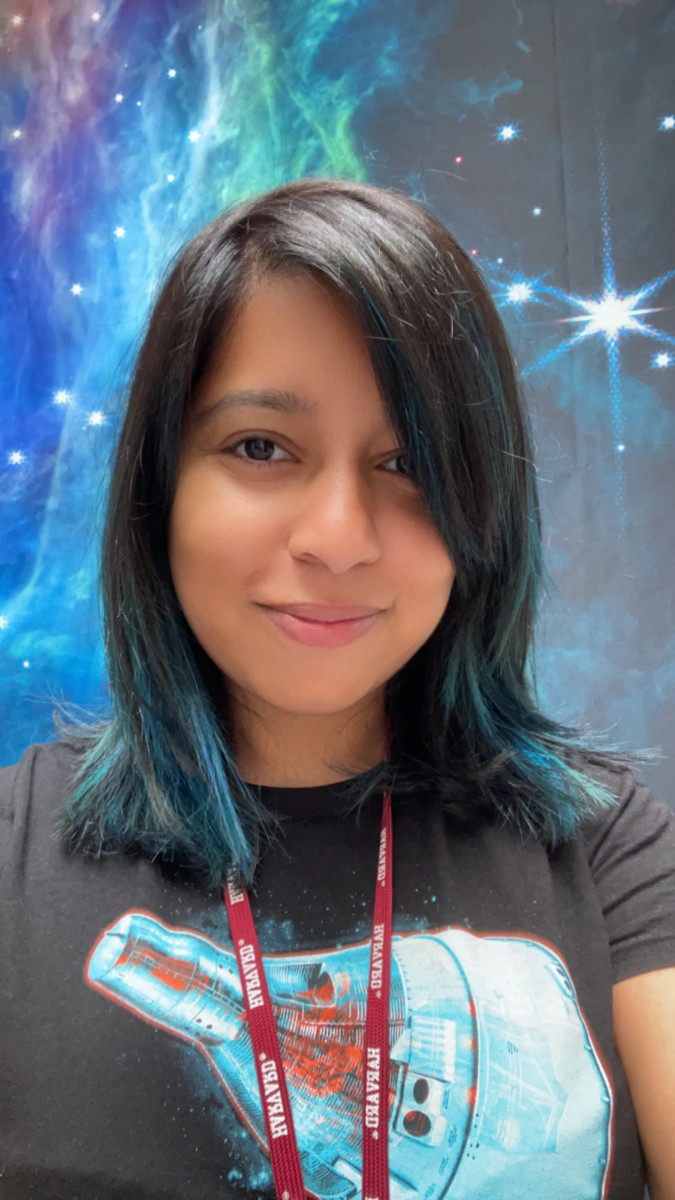
Maitrayee Gupta received her master’s of science in Cosmology from the University of Sussex in the United Kingdom. As part of that research, she studied the clustering properties of galaxies and the correlation between galaxy types and their mass, colour, and UV properties. She then joined the Nicolaus Copernicus Astronomical Centre to pursue a Ph.D. under Dr. Marek Sikora. The main objective of her thesis was to study differences between radiative properties of the accretion flows in Radio Loud (RL) and Radio Quiet (RQ) AGN and their relation to jet production efficiency, for which she received the Preludium Grant. She also received the NAWA Iwanovska Grant to research the variability of RL quasars at the Harvard Smithsonian Center for Astrophysics in MA, USA and a fellowship from the Harvard Smithsonian Center for Astrophysics to continue her research there with Dr. Aneta Siemiginowska after defending her thesis. She most recently moved to Toulouse, France where she is affiliated with the Institute for Research in Astrophysics and Planetology (IRAP) under CNRS, and CNES. There, she works as a postdoc developing EXODUS, a software tool for detecting faint rapid transients in XMM-Newton data that may not have been detected automatically using the XMM-Newton pipeline. While in France, she has also studied variability properties and black-hole masses of low-luminosity AGN. Her research interests include high-energy astrophysics, active galactic nuclei (AGN) and their host galaxies, and X-ray astronomy.
Thesis title: Comparison of AGN properties in luminous radio galaxies to their radio-quiet counterparts
Supervisor: Marek Sikora
Year of defence: 2021
Thesis title: Superfluid Neutron Star Dynamics
Supervisor: Brynmor Haskell
Year of defence: 2021
(Brera Astronomical Observatory, INAF, Merate, Italy)
Thesis title: Probing the nature of super-Eddington accretion in ultraluminous X-ray sources
Supervisor: Agata Różańska
Year of defence: 2021
(Nicolaus Copernicus Astronomical Center)
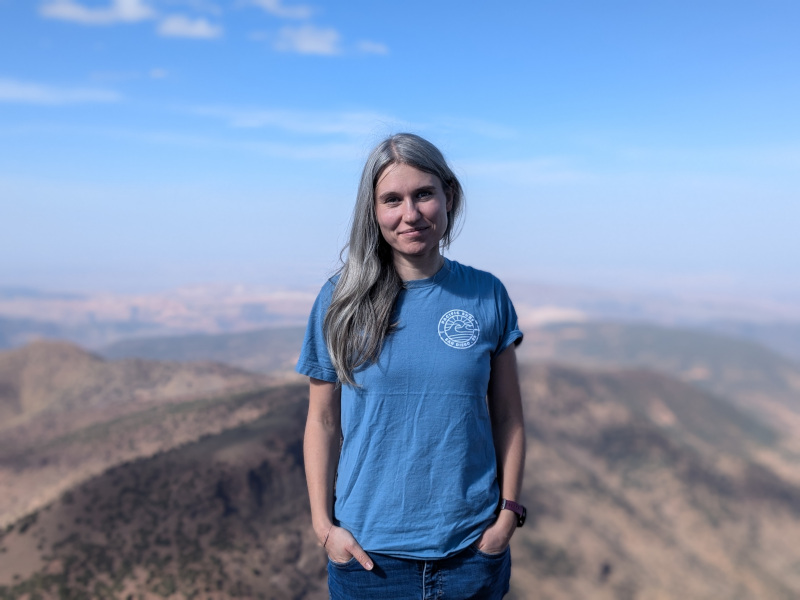
Henryka Netzel was born in Wrocław, Poland, where she completed her BSc studies in astronomy. She then moved to Warsaw to pursue an MSc degree at the University of Warsaw, followed by a PhD at the Nicolaus Copernicus Astronomical Center (CAMK). During her PhD, she studied classical pulsators and applied asteroseismology to infer their physical parameters.
After earning her PhD, she moved to Hungary, where she continued her research on classical pulsators using space-based observations at the Konkoly Observatory. She later joined a project at EPFL in Switzerland, focusing on spectroscopy of classical Cepheids. Currently, she is a member of the Araucaria Group at CAMK in Poland.
Thesis title: Badanie gwiazd klasycznego pasa niestabilności metodami asterosejsmologii
Supervisor: Radosław Smolec
Year of defence: 2021
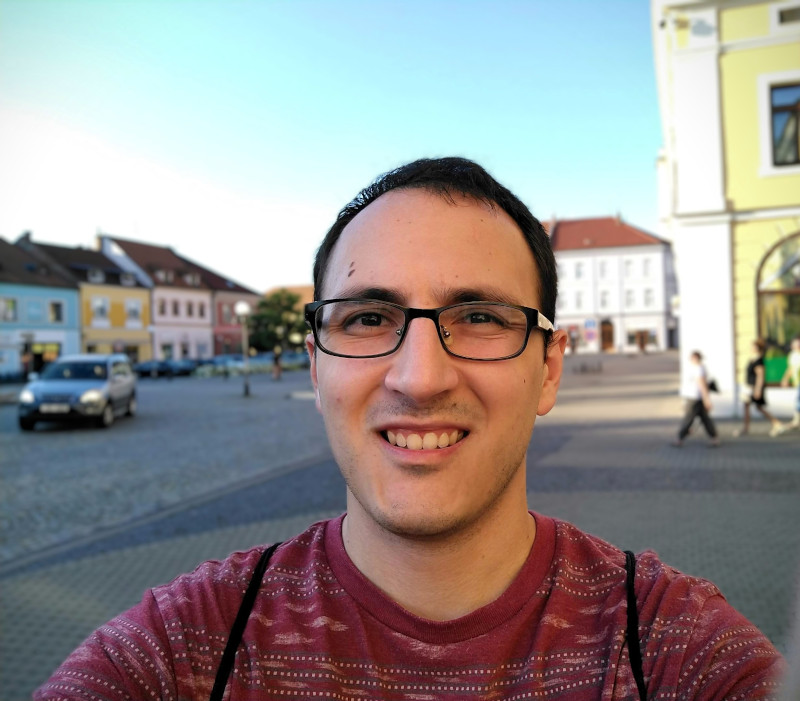
David Abarca grew up in the city of Centralia in Washington State in the USA. He received a Bachelor of Arts degree in Physics and Astrophysics at Harvard University. It was there that he developed an interest in numerical simulations after writing his senior thesis under the advisement of Prof. Ramesh Narayan and Dr. Aleksander Sądowski (another CAMK alumnus). After graduating, David spent another year at the Harvard-Smithsonian Center for Astrophysics continuing to work on research projects with Prof. Narayan and Dr. Sądowski. Through his close collaboration with Dr. Sądowski, he was persuaded to apply to the PhD program at CAMK. He was accepted under the supervision of Prof. Włodek Kluźniak. His main focus during the PhD was adapting the radiative hydrodynamic code, KORAL, to be able to simulate accretion disks around magnetized neutron stars. He also worked on the team who discovered Puffy Disks, involving close collaboration with the radiative astrophysics group at the Silesian University in Opava, Czech Republic. Ultimately, he elected not to pursue astronomy as a career, and instead decided to use his technical and analytical skills to transition into finance. He currently works at ING Hubs Poland in market risk management by validating models related to interest rate risk in the banking book.
Thesis title: Numerical simulations of accretion onto neutron stars
Supervisor: Włodzimierz Kluźniak
Year of defence: 2022
Thesis title: Disk-Planet Interactions: Formation of Mean-motion Resonances in a Gaseous Protoplanetary Disk
Supervisor: Ewa Szuszkiewicz
Year of defence: 2022
Thesis title: Constraining the geometry of the accretion flow in black hole X-ray binaries
Supervisor: Andrzej Zdziarski, Barbara De Marco
Year of defence: 2022
Thesis title: Thermodynamic methods for relativistic hydrodynamics
Supervisor: Brynmor Haskell
Year of defence: 2022
Thesis title: Applications of machine learning methods in gravitational-wave detectors data analysis
Supervisor: Michał Bejger, Elena Cuoco
Year of defence: 2022
Thesis title: Kinetic Numerical Simulations of Particle Acceleration Mechanisms in Relativistically Magnetized Jets
Supervisor: Krzysztof Nalewajko
Year of defence: 2022
(Institute of Philosophy and Sociology, Polish Academy of Sciences, Warsaw)
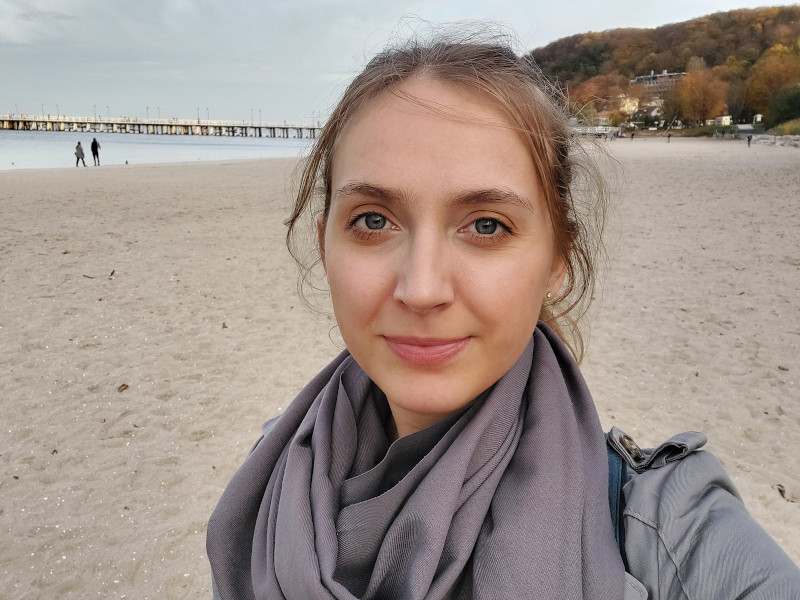
Katarzyna studied astronomy at the Nicolaus Copernicus University in Toruń, Poland, obtaining her BSc and MSc degrees for work focused on the radio morphologies of radio-loud active galactic nuclei (AGNs). Particularly interesting cases of her research were giant radio sources and radio galaxies with recurrent activity. In 2016 she moved to Warsaw where, under the supervision of Prof. Marek Sikora, she investigated the jet production efficiency in AGNs. This task incorporated thousands of galaxies for which a diverse radio dataset was collected, analyzed, and synthesized, resulting in a few well defined samples of galaxies. These studies confirmed the already known yet often questioned in the literature bimodal distribution of radio loudness, and supported the existence of certain threshold(s) condition(s) for the production of the strongest jets. Currently, and since 2020, she has been working as the Research Promoter at the Centre for the History of Renaissance Knowledge at the Institute of Philosophy and Sociology PAN where her analytical skills and goal-oriented mind allow her to help build a more robust research environment.
Thesis title: Observational constraints on jet production efficiency in Active Galactic Nuclei
Supervisor: Marek Sikora
Year of defence: 2022
(Tel Aviv University, Israel)
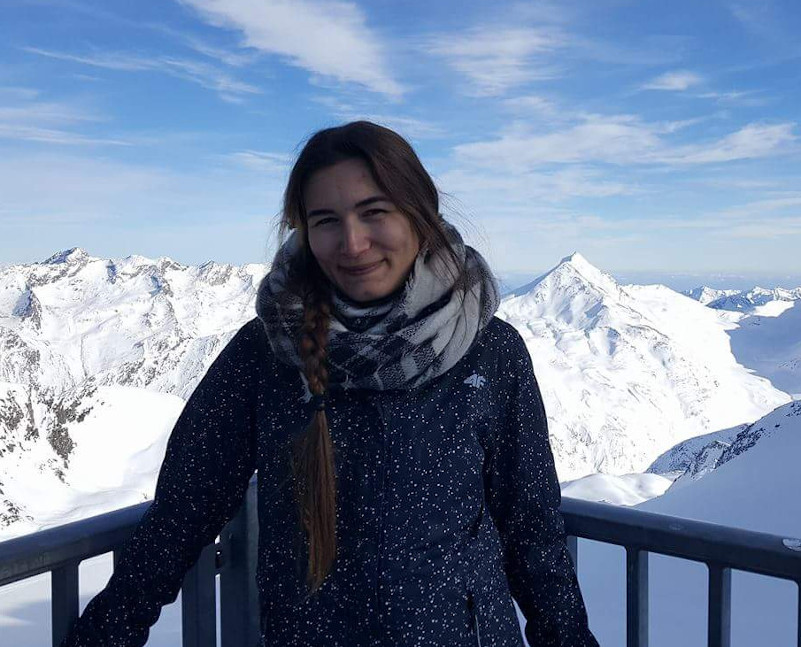
Marzena Śniegowska was born and grew up in Kruszwica, a small town in central Poland. She obtained his BSc. and MSc in Astronomy at the Faculty of Physics University of Wasaw. She joined as a PhD student at CAMK in 2018. During her PhD studies she worked with Prof. Michał Chodorowski of CAMK PAN and Prof. Bożena Czerny of CFT (Center for Theoretical Physics) PAN on time-dependent phenomena in active galactic nuclei, mostly radiation pressure driven thermal and viscous instabilities. Currently, Marzena is working as a postdoc in Tel Aviv University.
Thesis title: Variability and evolution of Active Galactic Nuclei
Supervisor: Bożena Czerny, Michał Chodorowski
Year of defence: 2022
(Princeton University, USA)
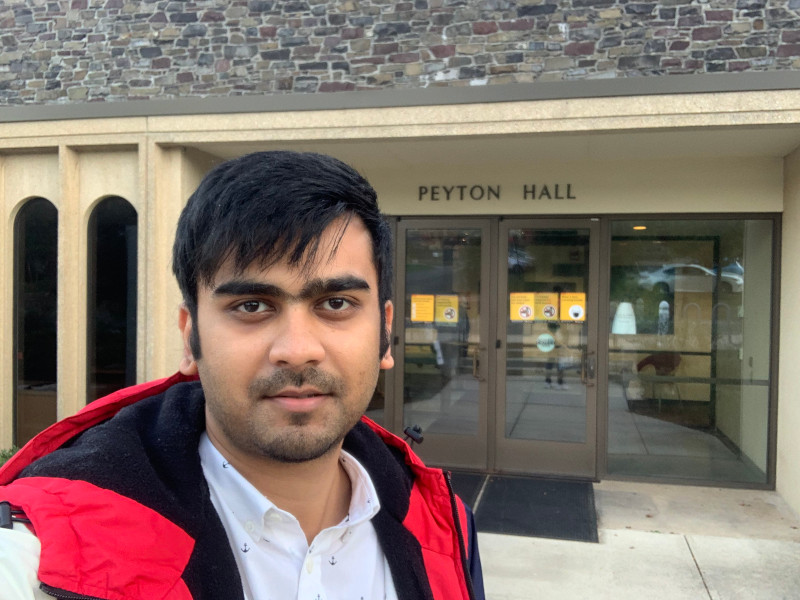
Ankan Sur was born in Kolkata, West Bengal, India. He obtained his BSc degree in physics from the St. Xavier's College of the University of Calcutta, and an MSc degree in Physics and Astronomy at the University of Amsterdam, where he was an Amsterdam Excellence Scholar. During his masters' thesis, he worked as part of the LIGO Virgo Collaboration on the statistical measurement of the Hubble constant. He joined CAMK to work on neutron star magnetic fields and on gravitational-wave mountains under the supervision of Dr. Brynmor Haskell. He was awarded the President's Scholarship of the Polish Academy of Sciences in 2021, and was also a predoc at the Flatiron Institute in New York. Following his completion of PhD, Ankan joined Princeton University in the US for his postdoctoral work.
Thesis title: Magnetic fields in isolated neutron stars: from the interior to the exterior
Supervisor: Brynmor Haskell
Year of defence: 2022
(Nicolaus Copernicus Astronomical Center)
Thesis title: Cefeidy klasyczne i II typu jako kosmiczne wskaźniki odległości
Supervisor: Grzegorz Pietrzyński
Year of defence: 2022
(Nicolaus Copernicus Astronomical Center)
Thesis title: Selected Methods of Precision Distance Determinations to Nearby Galaxies
Supervisor: Grzegorz Pietrzyński
Year of defence: 2022
Thesis title: Simulation of the dynamics and geometry of broad line region in active galactic nuclei
Supervisor: Bożena Czerny
Year of defence: 2023
Thesis title: Time-Domain and Spectroscopic studies of Active Galactic Nuclei.
Supervisor: Alex Markowitz
Year of defence: 2023
Thesis title: Extra Galactic Globular Cluster machinery based on MOCCA code for Star Cluster simulations.
Supervisor: Mirosław Giersz
Year of defence: 2023
Thesis title: The origin of binary black hole mergers
Supervisor: Tomasz Bulik
Year of defence: 2023
(Korean Astronomy and Space Science Institute (KASI), South Korea)
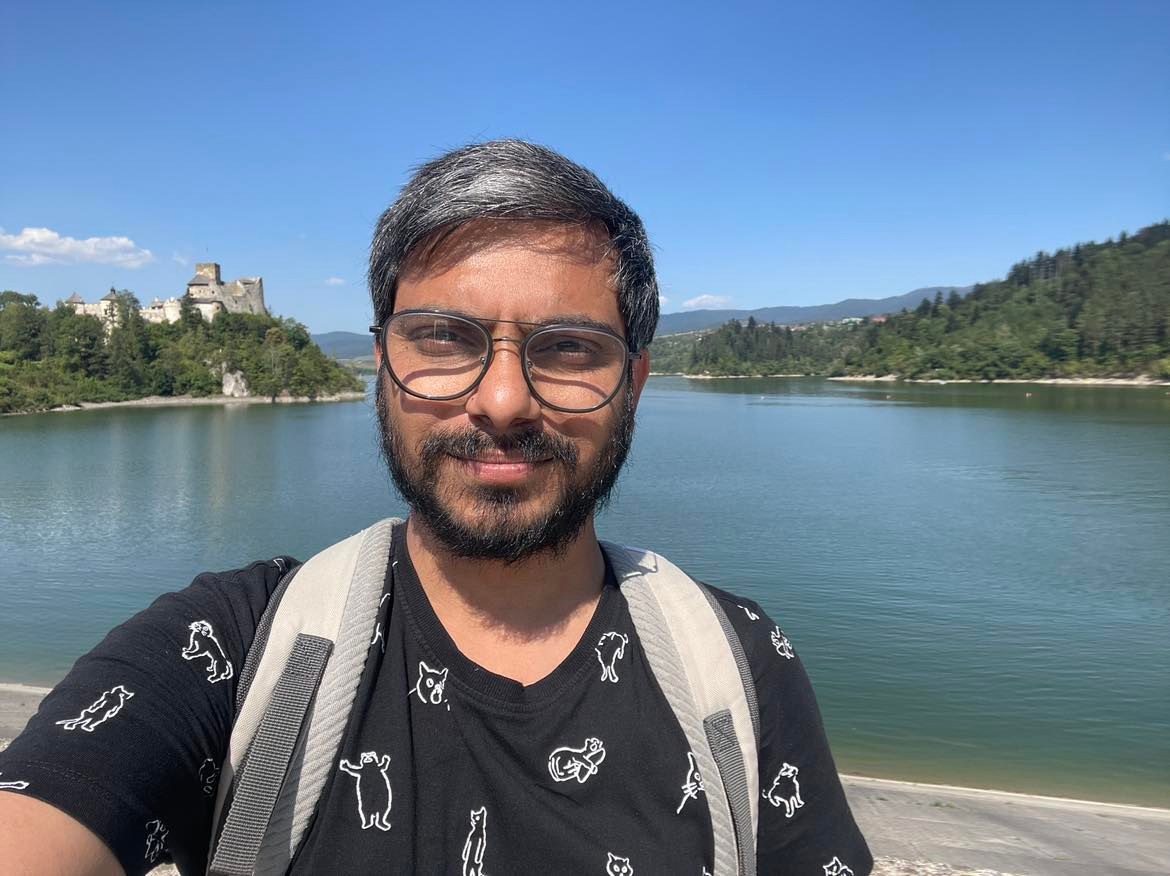
Chandra Shekhar Saraf was born in Sitamarhi, Bihar, India. He obtained his B.Sc. Honors degree in physics from The Maharaja Sayajirao University of Baroda, and M.Sc. degree in physics from the Savitribai Phule Pune University (formerly University of Pune). For his masters' thesis, he worked at the National Center for Radio Astrophysics in Pune, India on the topic of Lyman alpha radiative transfer to study the reionization period in the evolution of the Universe. He was awarded the V. Subramaniam prize by the Indian National Science Academy for his performance during masters degree. He joined CAMK in 2018 to work on testing cosmological models with cross-correlation between Cosmic Microwave Background lensing and galaxy surveys under the supervision of dr hab. Pawel Bielewicz and dr hab. Michal Chodorowski. His studies was an attempt towards resolving the tensions in modern cosmology like the S_8 tension. After the completion of PhD, Chandra Shekhar joined the Korean Astronomy and Space Science Institute (KASI) in South Korea for his postdoctoral work.
Thesis title: Studying tomographic cross-correlations between CMB gravitational lensing potential and galaxy surveys
Supervisor: Paweł Bielewicz & Michał Chodorowski
Year of defence: 2023
Thesis title: Dense matter properties and neutron star modelling
Supervisor: Julian Zdunik, Micaela Oertel
Year of defence: 2023
Thesis title: Warm Coronae for Magnetically Supported Disks in Accreting Black Holes
Supervisor: Agata Różańska
Year of defence: 2024
Thesis title: Search for Dark Matter with Liquid Argon Detectors
Supervisor: Marcin Kuźniak, Davide Franco
Year of defence: 2024
(Silesian University of Opava, Czech Republic)

Fatemeh Kayanikhoo (Fatima) was born in Shiraz, Iran. She earned her master’s degree in astrophysics from Shiraz University in 2012. While studying astrophysics, she established an astronomical NGO and has been actively involved in outreach activities as an amateur astronomer since 2009. In 2015, she continued research in astrophysics in collaboration with Birjand University and Shiraz University. In 2019, Fatima received a six-month grant to work with Prof. Constança Providência at the University of Coimbra. She later joined CAMK as a PhD student under the supervision of Prof. Włodek Kluźniak and Dr. Miljenko Čemeljić, focusing on neutron star ultraluminous X-ray sources. Fatima completed her PhD in October 2024 and began a postdoctoral position at the Silesian University of Opava, Czech Republic, in November 2024.
Learn more about Fatima: https://fkayanikhoo.wixsite.com/fatima
Thesis title: Radiative simulations of moderately magnetized accreting pulsars as ultraluminous X-ray sources
Supervisor: Włodzimierz Kluźniak, Miljenko Čemeljić
Year of defence: 2024
Thesis title: Accretion and outflows in Newtonian and extreme gravity
Supervisor: Włodzimierz Kluźniak
Year of defence: 2024
Thesis title: Comprehensive study of low-mass Compact Hierarchical Triples using Eclipsing Binaries
Supervisor: Krzysztof Hełminiak
Year of defence: 2024
Thesis title: Morphology of Circumnuclear Accreting Gas in Active Galactic Nuclei
Supervisor: Alex Markowitz
Year of defence: 2024
Thesis title: TESS photometry of hot subdwarf stars
Supervisor: Andrzej Baran
Year of defence: 2024
Thesis title: Kepler photometry of two open clusters NGC6791 and NGC6819
Supervisor: Andrzej Baran
Year of defence: 2024
Thesis title: Excitation of pulsation in hot pre-white dwarf stars from an observational point of view
Supervisor: Gerald Handler, David Jones
Year of defence: 2024
Thesis title: Investigating backgrounds in dark matter searches: Argon-37 activation and cosmogenic neutron suppression in the DarkSide experiments
Supervisor: Marcin Kuźniak, Masayuki Wada
Year of defence: 2025
Thesis title: Einstein Telescope: Detection of Binary Black Hole Gravitational Wave Signals Using Deep Learning
Supervisor: Tomasz Bulik, Mariusz Suchenek
Year of defence: 2025
Thesis title: Optimisation Of Light Collection In Liquid Argon Detectors And Modelling Pulse Shape Discrimination For Dark Matter Searches
Supervisor: Marcin Kuźniak
Year of defence: 2025
(Astronomy Department of the University of São Paulo (IAG-USP))

André Rodrigo da Silva was born in São Paulo, Brazil. He obtained a teacher's degree (Licenciatura) in Sciences - Physics from the Federal University of São Paulo (UNIFESP) and a Master of Sciences degree from the Nuclear Technology program in the subfield of Environmental Radiometry from the University of São Paulo (USP). In the PhD, his research focused on analysing the dynamics and orbits, as well as, the atmospheric parameters and chemical abundances with cutting edge techniques. A high-light of his research was the discovery of BPS CS 29529-0089 which points to a neutron star merger contribution to the enrichment of r-process elements in the disk of the Galaxy. Currently, he is working in the Southern Photometric Local Universe Survey (S-PLUS) looking for metal-poor stars enriched in the r-process.
Thesis title: Chemodynamics of r-process-rich metal-poor stellar populations in the Galaxy
Supervisor: Rodolfo Smiljanic
Year of defence: 2025
Thesis title: Probing stellar wind properties in Cygnus X-1 through X-ray variability
Supervisor: Barbara De Marco
Year of defence: 2025
Thesis title: The Circumstellar Environment in V838 Monocerotis: An Interferometric View
Supervisor: Tomasz Kamiński
Year of defence: 2025
(Villanova University, USA)
Thesis title: Pulsating Stars in Eclipsing Binaries
Supervisor: Krzysztof Hełminiak
Year of defence: 2025
(University of Padova, Universität Heidelberg)

Amedeo was born in Turin (Italy). He obtained his Bachelor's degree in Physics at the University of Turin and his Master's degree in Space Sciences at the University of Liège (Belgium). He then worked at the Max Planck Institute for Extraterrestrial Physics in Garching (Germany), on the observation of the supermassive black hole (SgrA*) at the center of the Milky Way. He joined CAMK for his PhD studies in 2020, and in the meantime worked as a visitor fellow at the European Southern Observatory in Garching (Germany) first, and then at the University of California, San Diego (USA). His doctoral research orbited around the theoretical and computational aspects of the evolution of massive stars in binaries, and their consequent evolution in black hole binaries that could be detectable with gravitational wave observations. During his PhD, he also took part in habitable exoplanets research and to the writing of a sci-fi book in collaboration with the European Astrobiology Institute, called Life Beyond Us.
Learn more about Amedeo at: sites.google.com/view/amedeoromagnolo/home
Thesis title: Gravitational wave sources. Advancements in stellar evolution modeling of binary black hole progenitors
Supervisor: Tomasz Bulik, Jakub Klencki
Year of defence: 2025
(Observatoire de la Côte d'Azur, France)
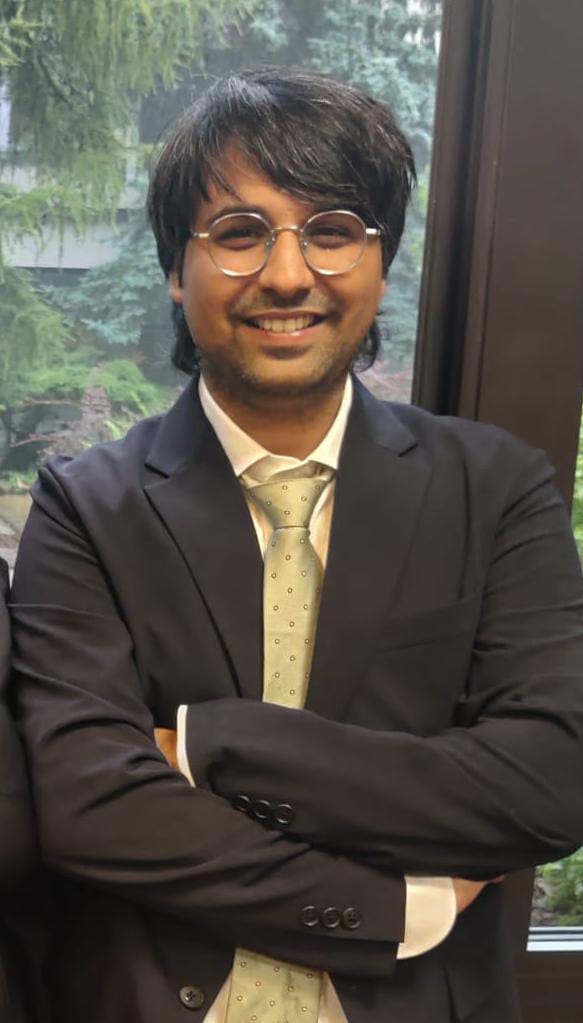
Rajeev was born in Uttarakhand, India. He obtained his integrated Bachelor’s and Master’s (BS-MS dual degree) in basic sciences with a major in physics from the Indian Institute of Science Education and Research (IISER), Pune. For his Master’s thesis, he worked at the Indian Institute of Astrophysics (IIA), Bengaluru, focusing on the spectroscopic study of neutron-capture elements in metal-poor stars. Rajeev joined the Nicolaus Copernicus Astronomical Center (CAMK, Warsaw) to pursue his PhD, working on classical Cepheids under the supervision of dr hab. Radosław Smolec. His doctoral research utilized photometry data from the Optical Gravitational Lensing Experiment (OGLE) survey to study non-evolutionary pulsation period changes in classical Cepheids. Following the completion of his PhD, Rajeev will join the Observatoire de la Côte d'Azur in France for his postdoctoral research.
Thesis title: On the Diversity of Classical Cepheid Variability. New Constraints on Low-Amplitude Periodicities, Binarity, and Non-Evolutionary Period Changes
Supervisor: Radosław Smolec
Year of defence: 2025
Thesis title: Measurement of Nuclear Recoils in Liquid Argon for Dark Matter Searches
Supervisor: Marcin Kuźniak, Masayuki Wada
Year of defence: 2025
To modify or update your profile please contact phdstudies@camk.edu.pl
The website was created as part of the CAMK's Foreign Promotion programme financed by the National Agency for Academic Exchange.